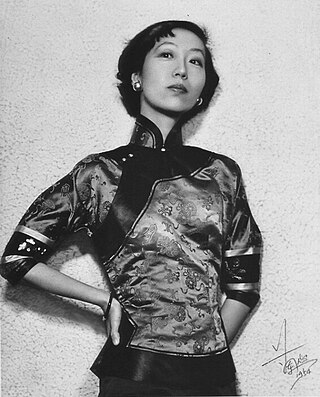
Eileen Chang (traditional Chinese: 張愛玲; simplified Chinese: 张爱玲; pinyin: Zhāng Àilíng; Wade–Giles: Chang1 Ai4-ling2;September 30, 1920 – September 8, 1995), also known as Chang Ai-ling or Zhang Ailing, or by her pen name Liang Jing (梁京), was a Chinese-born American essayist, novelist, and screenwriter.

Ruan Lingyu, also known by her English name Lily Yuen, was a Chinese silent film actress. One of the most prominent Chinese film stars of the 1930s, her exceptional acting ability and suicide at the age of 24 led her to become an icon of Chinese cinema.

Center Stage, also known as Actress and Yuen Ling-yuk, is a 1991 Hong Kong biographical drama film directed by Stanley Kwan. It follows the life and career of silent film actress Ruan Lingyu (1910–1935), portrayed by Maggie Cheung.

New Women is a 1935 Chinese silent drama film produced by the United Photoplay Service. It is sometimes translated as New Woman. The film starred Ruan Lingyu and was directed by Cai Chusheng. This film became one of Ruan Lingyu’s better known works. Her suicide on International Women’s day drew attention to the controversial status of new women and made this film a sensation in modern China.
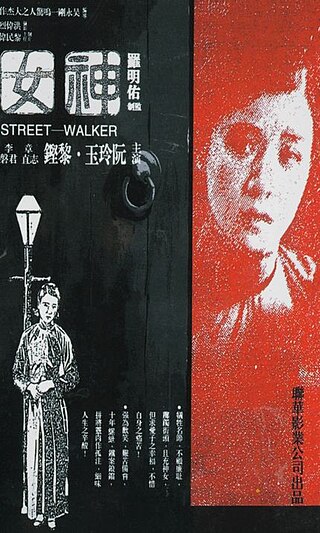
The Goddess is a 1934 Chinese silent film released by the Lianhua Film Company. The film tells the story of an unnamed woman, who lives as a streetwalker by night and devoted mother by day in order to get her young son an education amid social injustice in the streets of Shanghai, China. It stars Ruan Lingyu in one of her final roles, and was directed by Wu Yonggang. Lo Ming Yau produced the film and Hong Weilie was the cinematographer.
The 16th Central Committee of the Chinese Communist Party was in session from 2002 to 2007. It held seven plenary sessions. It was set in motion by the 16th National Congress of the Chinese Communist Party. The 15th Central Committee preceded it. It was followed by the 17th Central Committee of the Chinese Communist Party.
Zhang Wei or Zhangwei may refer to:
Kong Lin is a Chinese actress, television series and movie producer, art director, and semi-rock-pop singer. Born in Hangzhou, Zhejiang she now lives in Beijing, Jilin.

Hu Die, also known by her English name Butterfly Wu, was a popular Chinese actress during the 1920s and 1930s. She was voted China's first "Movie Queen" in 1933, and won the Best Actress Award at the 1960 Asian Film Festival for her performance in Rear Door.
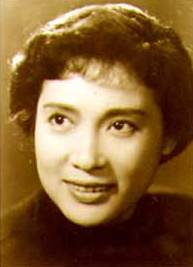
Qin Yi was a Chinese actress. She gained fame for her stage performances in the war-time capital Chongqing during the Second Sino-Japanese War. After the war, she became one of China's most popular film actresses throughout the 1950s and the 1960s, and was recognised as one of the country's top four actresses. Premier Zhou Enlai called her the "most beautiful woman in China".
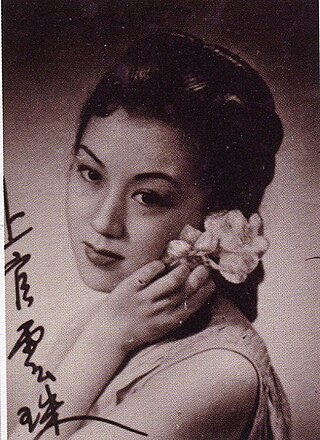
Shangguan Yunzhu was a Chinese actress active from the 1940s to the 1960s. She was considered one of the most talented and versatile actresses in China, and was named one of the 100 best actors of the 100 years of Chinese cinema in 2005.
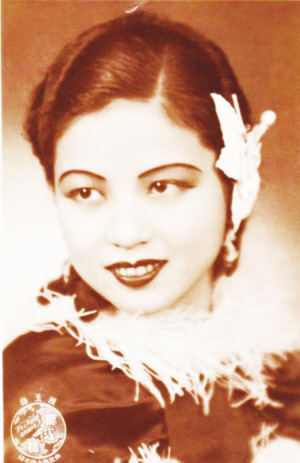
Chen Yumei was a Chinese film actress and singer active during the 1920s and 1930s. In her heyday she was one of the biggest stars in China, crowned "Movie Queen" in 1934. At the peak of her career she married Runje Shaw, the boss of Tianyi Film Company, and retired from acting. She was nicknamed the "frugal star" for her efforts at promoting the virtue of frugality.
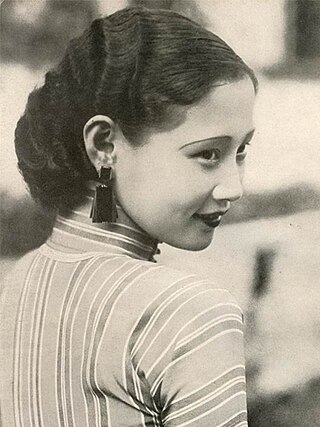
Xu Lai was a Chinese film actress, socialite, and World War II secret agent. Known as the "Standard Beauty", she was active in the film industry for only three years, and quit acting after the suicide of the great star Ruan Lingyu in 1935. Her first husband was Li Jinhui, the "Father of Chinese pop music".

A Hint of You is a 2013 Taiwanese romantic television series with a food theme produced by Sanlih E-Television, starring Michael Zhang, Nana Lee, Danson Tang, Demi Yin, Jay Shih, Cindy Song and Hans Zhang as the main cast. The Chinese title literally translates to "Taste of Missing You". Filming began on February 14, 2013 and completed on June 25, 2013, the drama was filmed as it aired. First original broadcast began on March 6, 2013 on SETTV, airing on weekdays from 9:00-10:00 pm, with the last of the 68 episodes aired on June 28, 2013. This is SETTV's last drama to air during its weekday 9:00-10:00 pm timeslot before it was obsoleted to air variety programs instead.
Zhang Huachen is a Chinese footballer who currently plays for Changchun Yatai in the Chinese Super League.

Zhang Xinsheng, also known as Retribution is a lost 1923 crime film from the Republic of China. Directed by Zhang Shichuan, it was adapted by Zheng Zhengqiu from a real-life patricide in which a deeply indebted man had killed his father for his inheritance. Emphasizing verisimilitude in its production and advertising, Zhang Xinsheng was initially a modest success but was later censored for its graphic violence.

Lonely Orchid, also known as Orchid in the Valley, is a 1926 silent family drama film directed by Zhang Shichuan for the Mingxing Film Company. Adapted from a British novel via several intermediary translations, it follows a married couple who are separated after the husband falls for a seductress, but reunite when his disguised first wife returns. The film changed several settings and plot elements to better suit Chinese audiences, and was a commercial success upon release. Now lost, Lonely Orchid was remade by Mingxing in 1935.

The Mingxing Film Company, also credited as the Star Motion Picture Production Company, was a production company active in the Republic of China between 1922 and 1937. Established by a consortium of creative professionals, including film director Zhang Shichuan, dramatist Zheng Zhengqiu, and critic Zhou Jianyun, Mingxing initially produced comedy films that drew little audience attention. Facing insolvency, in 1923 the company used its last capital to produce Orphan Rescues Grandfather, which released to massive commercial success and provided the company with the revenue needed to expand and hire new talent.

Wu Suxin, also credited as White Rose Woo, was a Chinese actress of the silent era. Trained at the Far East Film College, she completed seven films for the Tianyi Film Company between 1925 and 1927 before migrating to the Huaju Film Company. There, she became the company's lead female star, appearing in all of its films – generally as a wuxia heroine. After Huaju closed, Wu worked briefly with the Dahua Film Company before focusing on the stage.

















